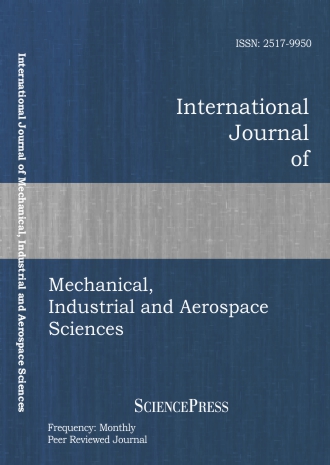
Scholarly
Volume:12, Issue: 8, 2018 Page No: 784 - 790
International Journal of Mechanical, Industrial and Aerospace Sciences
ISSN: 2517-9950
Laser Beam Micro-Drilling Effect on Ti-6Al-4V Titanium Alloy Sheet Properties
Laser beam micro-drilling (LBMD) is one of the most important non-contact machining processes of materials that are difficult to machine by means oeqf conventional machining methods used in various industries. The paper is focused on LBMD knock-down effect on Ti-6Al-4V (Grade 5) titanium alloy sheets properties. Two various process configurations were verified with a focus on laser damages in back-structure parts affected by the process. The effects of the LBMD on the material properties were assessed by means of tensile and fatigue tests and fracture surface analyses. Fatigue limit of LBMD configurations reached a significantly lower value between 15% and 30% of the static strength as compared to the reference raw material with 58% value. The farther back-structure configuration gives a two-fold fatigue life as compared to the closer LBMD configuration at a given stress applied.